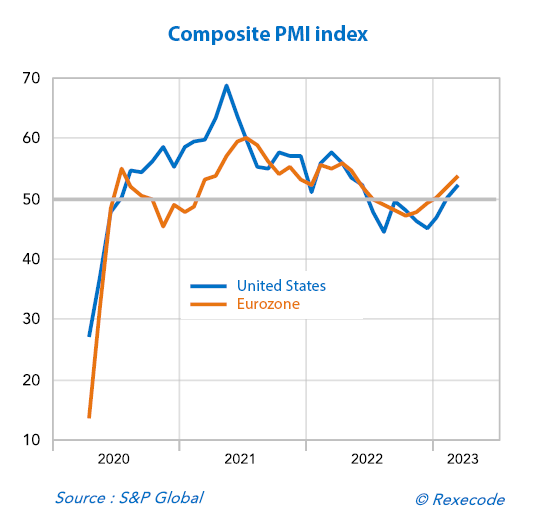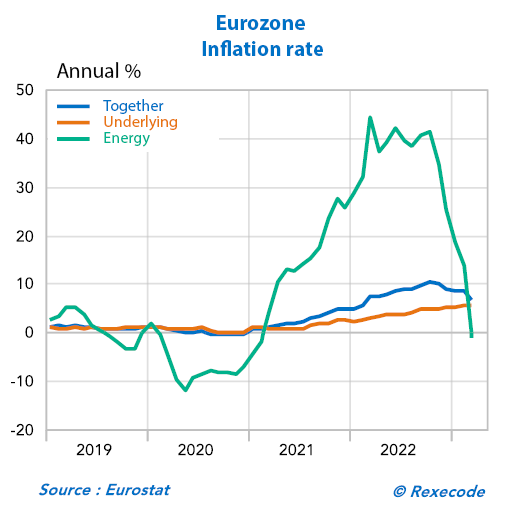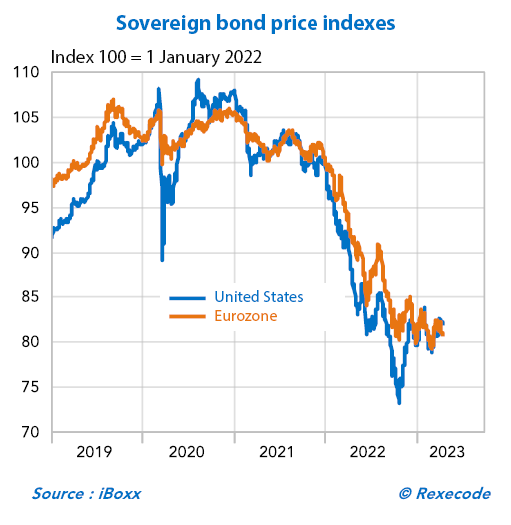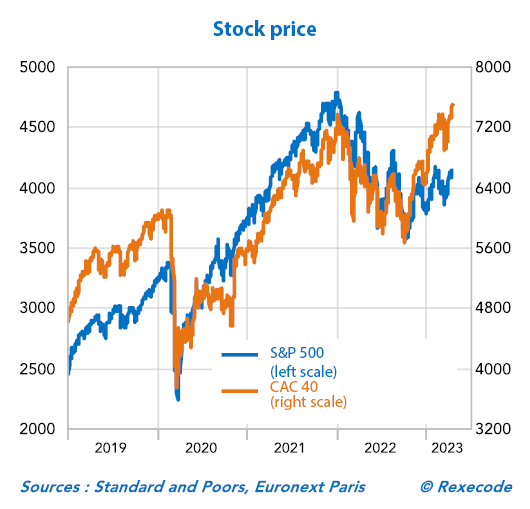
THE POLICY OF RAISING KEY RATES IS TAKING EFFECT DESPITE THE TURBULENT MONTH OF MARCH CONCERNING THE MARKETS AND THE BANKING SECTOR
Despite a slowdown, as shown by the latest US GDP figures, growth remains resilient. This is due to the supply crisis that started in 2020 and which is only now slowly abating. Household savings accumulated during the pandemic have not yet been used.
It makes it possible to avoid falling into recession both in the United States and in the eurozone. This resilient growth explains the good performance of equity indices because companies have managed to maintain their margins.

While headline inflation has benefited from the fall in energy prices (under 7% headline inflation compared to March 2022), it has, however, experienced a significant increase in services, fuelling core inflation, which reached a peak of 5.7% over one year in the eurozone.

Fuelled by the fall of Silicon Valley Bank (SVB) and the sale of Credit Suisse, the markets experienced a period of stress and instability, especially within the banking sector.
However, the bankruptcies of SVB, Signature bank and Credit Suisse cannot be compared to the 2008 financial crisis. Banking regulations have changed significantly as a result, and the authorities have been able to act quickly.
The fall of the SVB is linked to an excessive concentration of its activities and a clientele mainly composed of American high-tech companies. It has not been able to meet its clients’ demands for reimbursement of deposits.
The intervention of the American authorities made it possible to assure depositors of recovering their assets, and to reassure the markets, but at the same time it demonstrates that the regulations in force in the United States have not worked.
In Europe, Credit Suisse was taken over by its historical competitor UBS below its market value. Credit Suisse has been talked about for a long time with recurring losses despite its very profitable Swiss activities (wealth management, corporate credit).

Apart from the management errors and the particular circumstances of these institutions, other underlying factors have accelerated these bankruptcies, including the rise in interest rates which is taking many financial players by storm; the bond market is under strong pressure.
The monthly closings of equity indices do not necessarily reflect this phase of banking stress. The CAC 40 is very close to its historic highs, just fifty points from 7,400 points, with an increase of 1% over the last week of March and the quarter. European equity indices also experienced a remarkable rebound, with levels very close to their recent highs. The S&P 500 closed above 4,000 points.

Sources : Rexecode, Banque Delubac & Cie, Refinitiv, Turkstat, INDEC, Central Administration for Statistics, INSEE